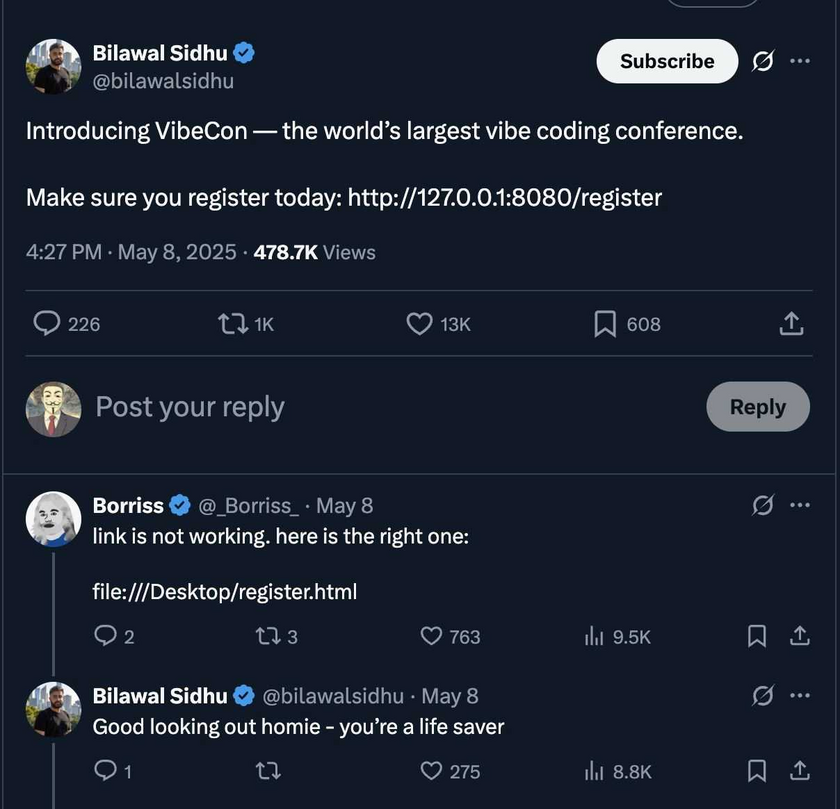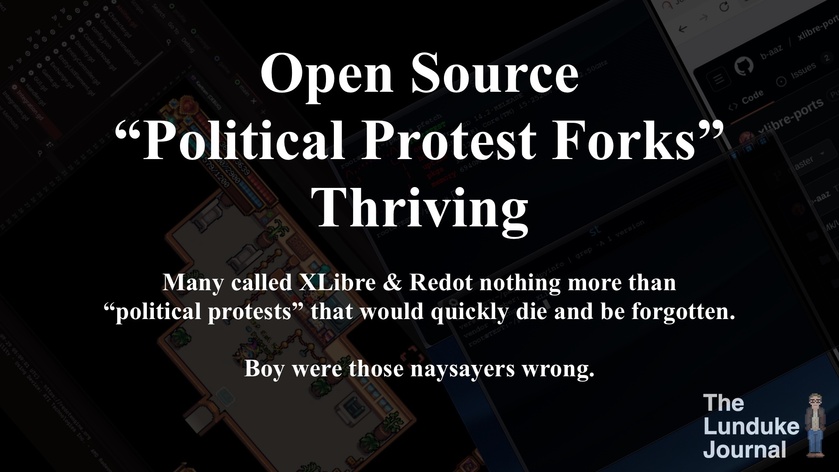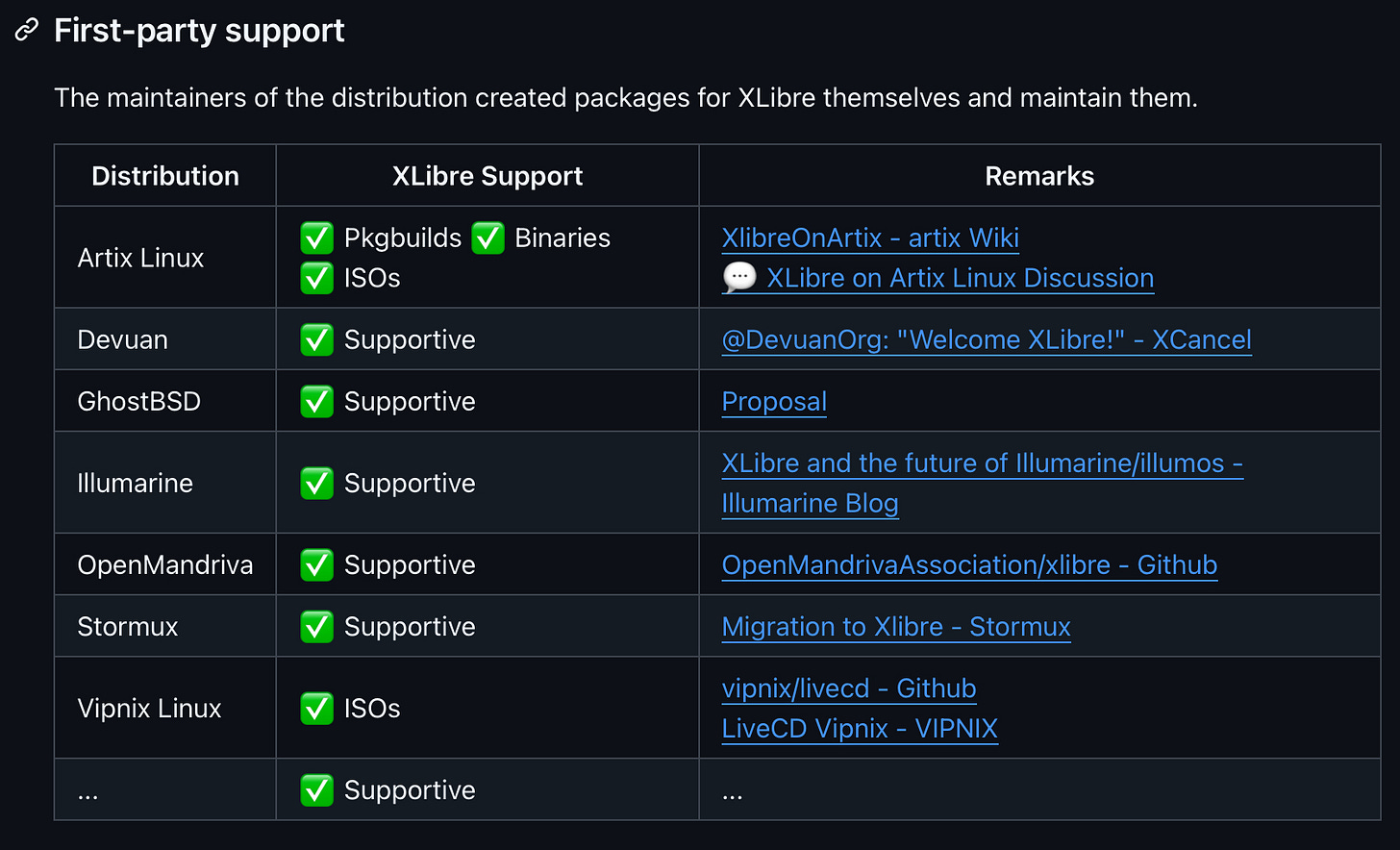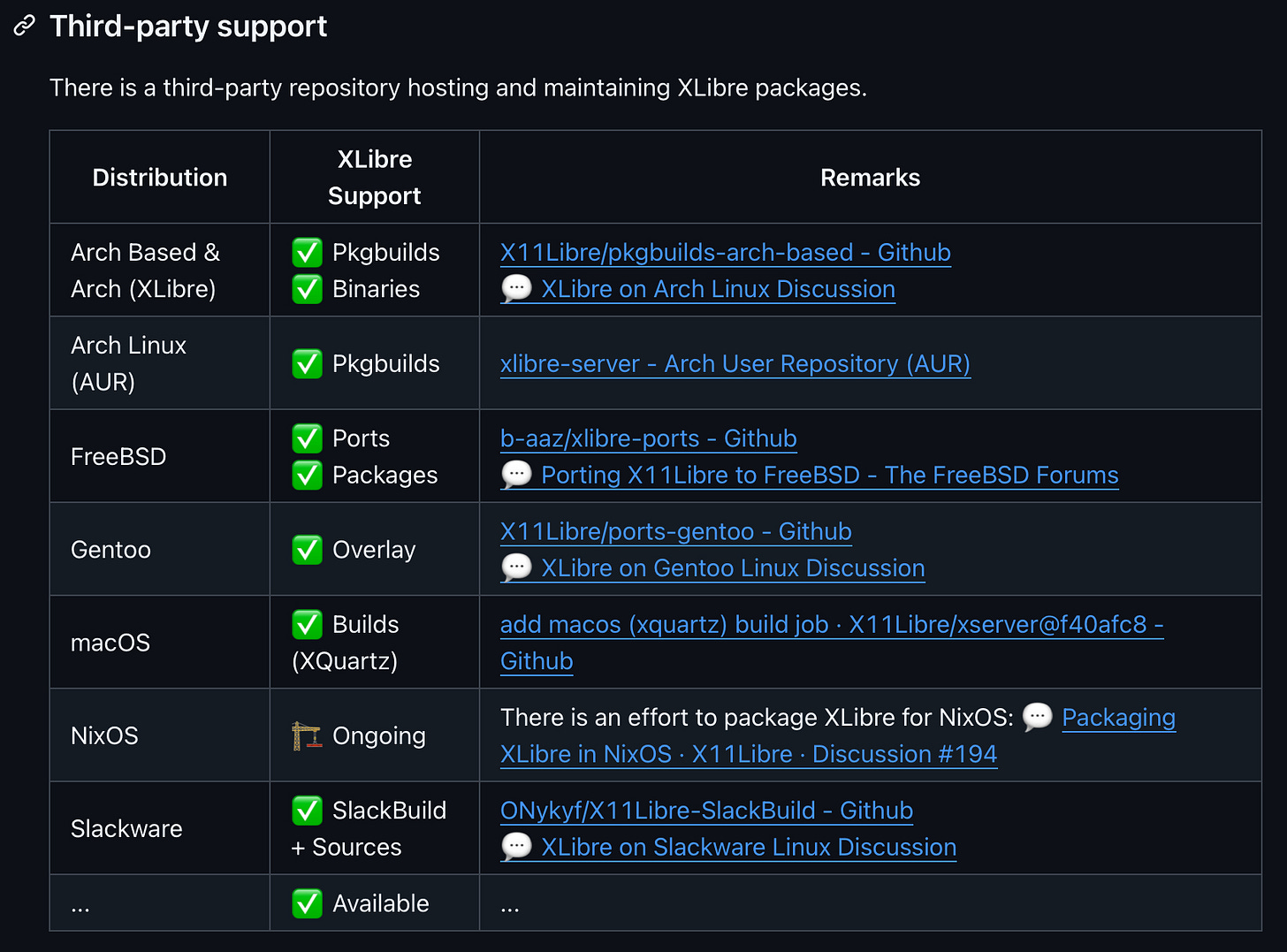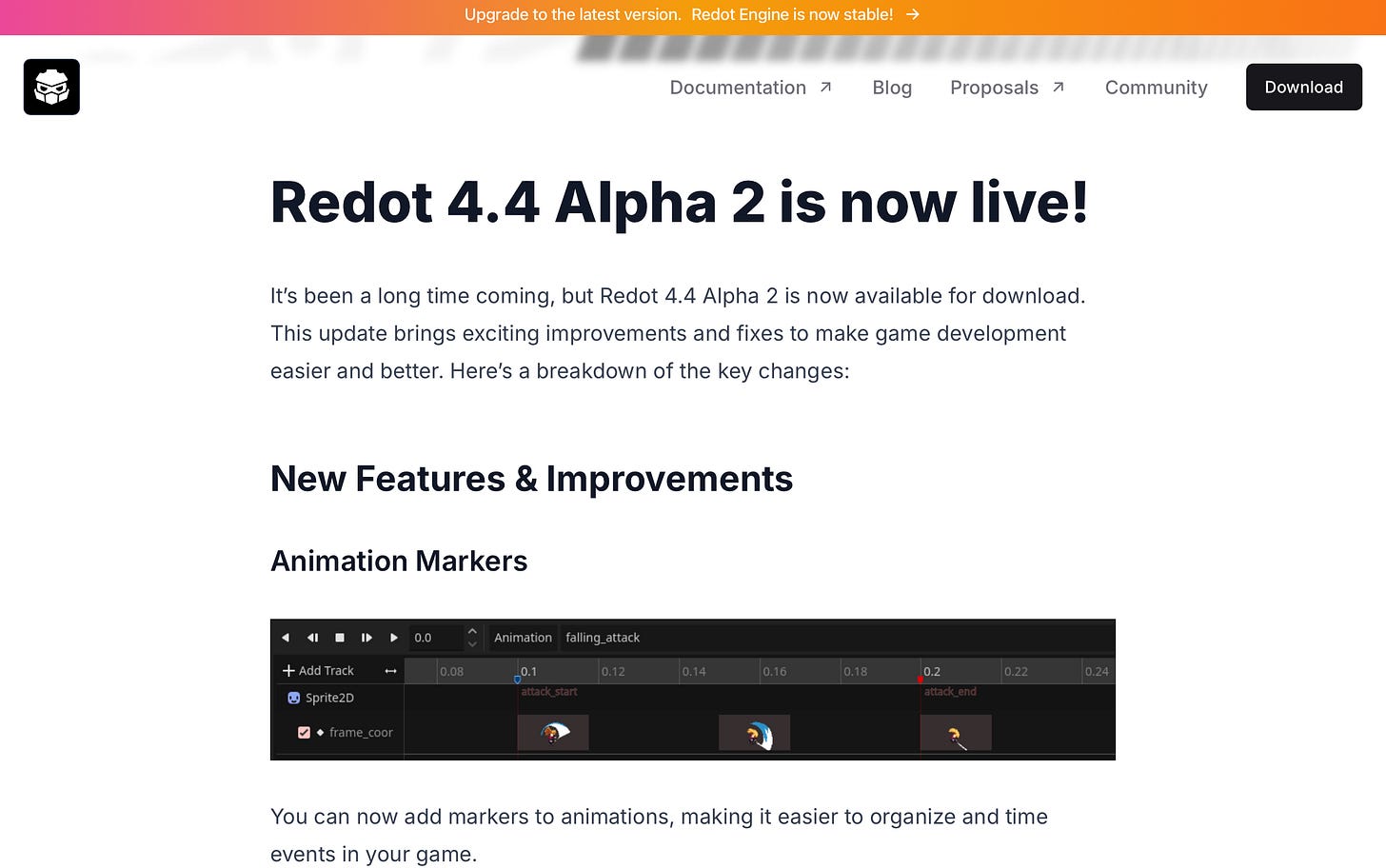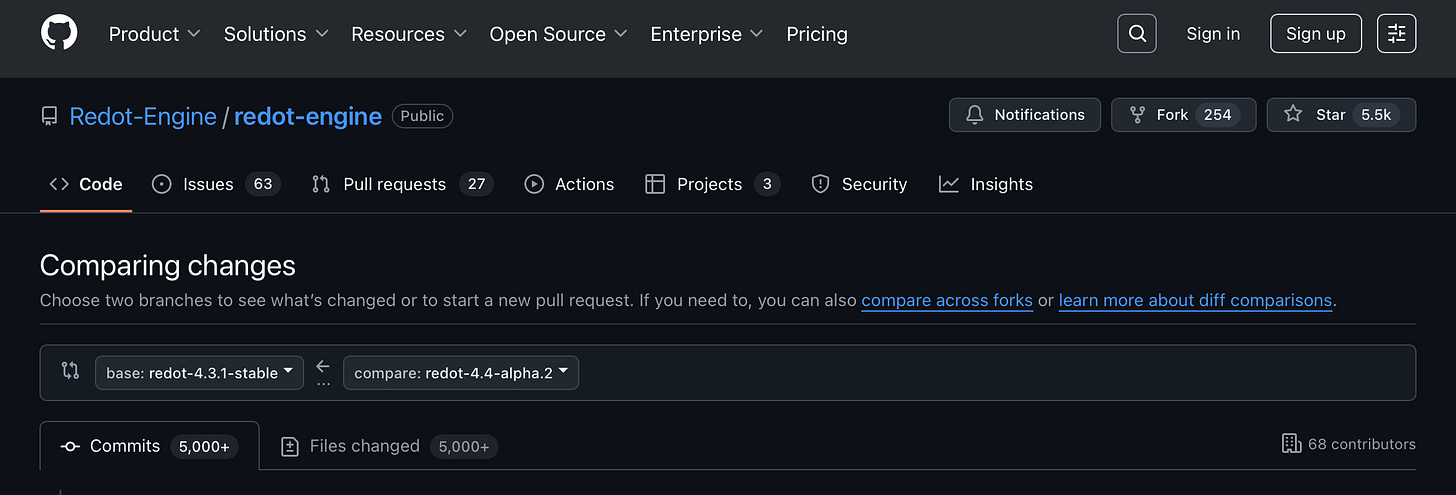Back in April, The Lunduke Journal broke the story of IBM “ditching DEI policies” company wide — including at their subsidiary, Red Hat. This change was announced in the wake of multiple lawsuits against IBM (for their DEI policies) and executive orders against DEI from President Trump.
At the time, activist employees at Red Hat / IBM were not happy (to say the least). Encouraging and planning protests, “raising hell”, and even “killing fascists”.
But, now that a little time has passed, let’s take a look inside at IBM and see how their “ditching DEI” change is actually going.
DEI Staying “Under the Radar”
Thanks to whistleblowers within IBM, we know that employee groups focused on DEI still, in fact, exist. They are simply changing names in order to “stay under the radar” and avoid having “a target on their back”.
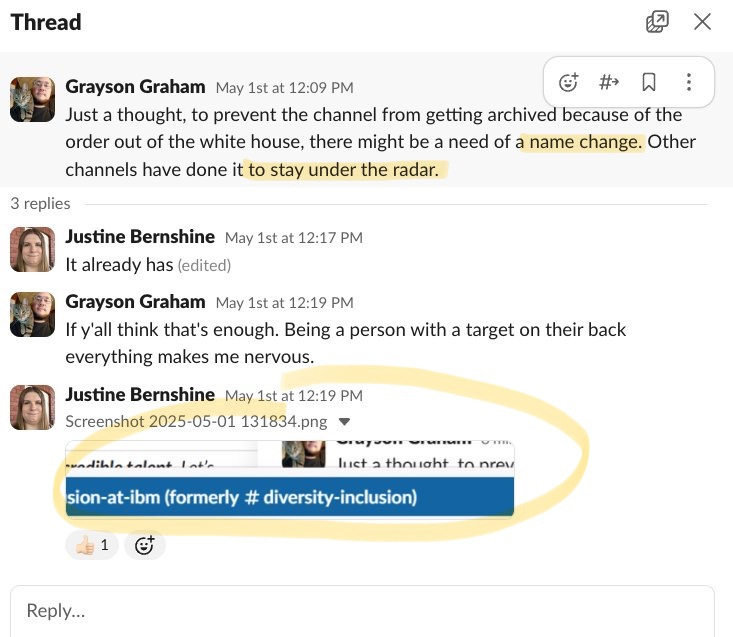
The “diversity-inclusion” corporate Slack channel, for example, is now named “inclusion-at-ibm”. They simply dropped the word “diversity”.
The DEI Department is Still There
Employees are using that IBM DEI Slack channel to clarify corporate changes to DEI policy. Which, again, thanks to whistleblowers… we have screenshots of.
A few key items:
The “DEI Department” has been renamed to “Inclusion” — and now reports to Kitty Chaney Reed (the Chief Leadership, Culture and Inclusion Officer).
IBM is no longer part of the Human Rights Campaign — “the HRC no longer align with IBM priorities”.
“People can still identify their preferred pronouns in all of IBM systems.”
The game-ified “Allyship Badge” system has been removed.
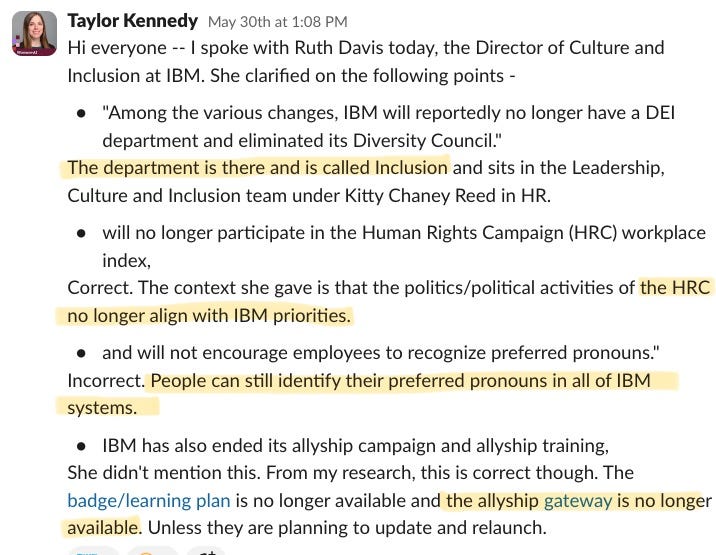
As we can see, some DEI policies and programs are gone, while others remain. And IBM is making a point of renaming their DEI Department within HR.
We gain these insights thanks to Ruth Davis — an IBM Executive and who currently identifies as a “DEI Advocate”.
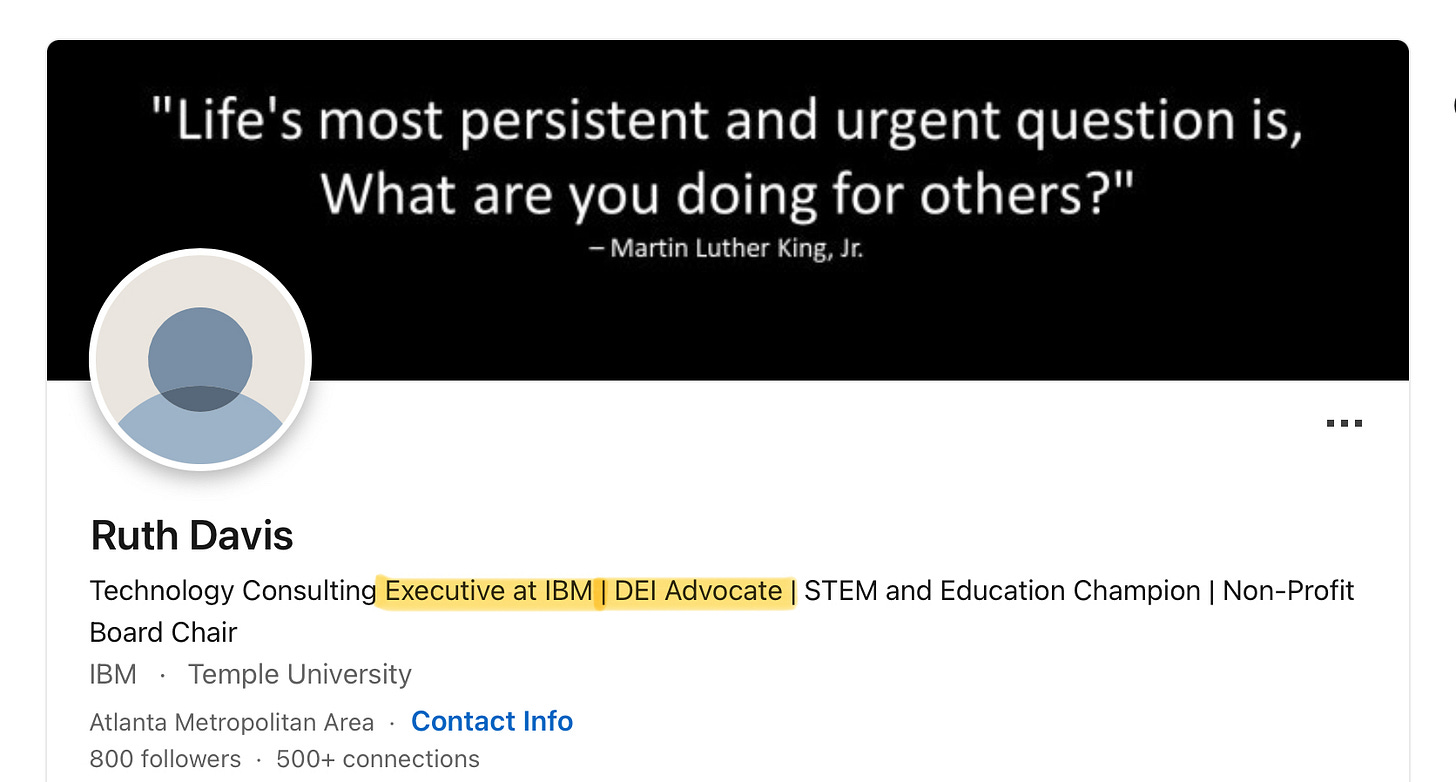
These clarifications were published by a current member of the IBM HR team… who was originally hired as a “Diversity and Inclusion Intern”.
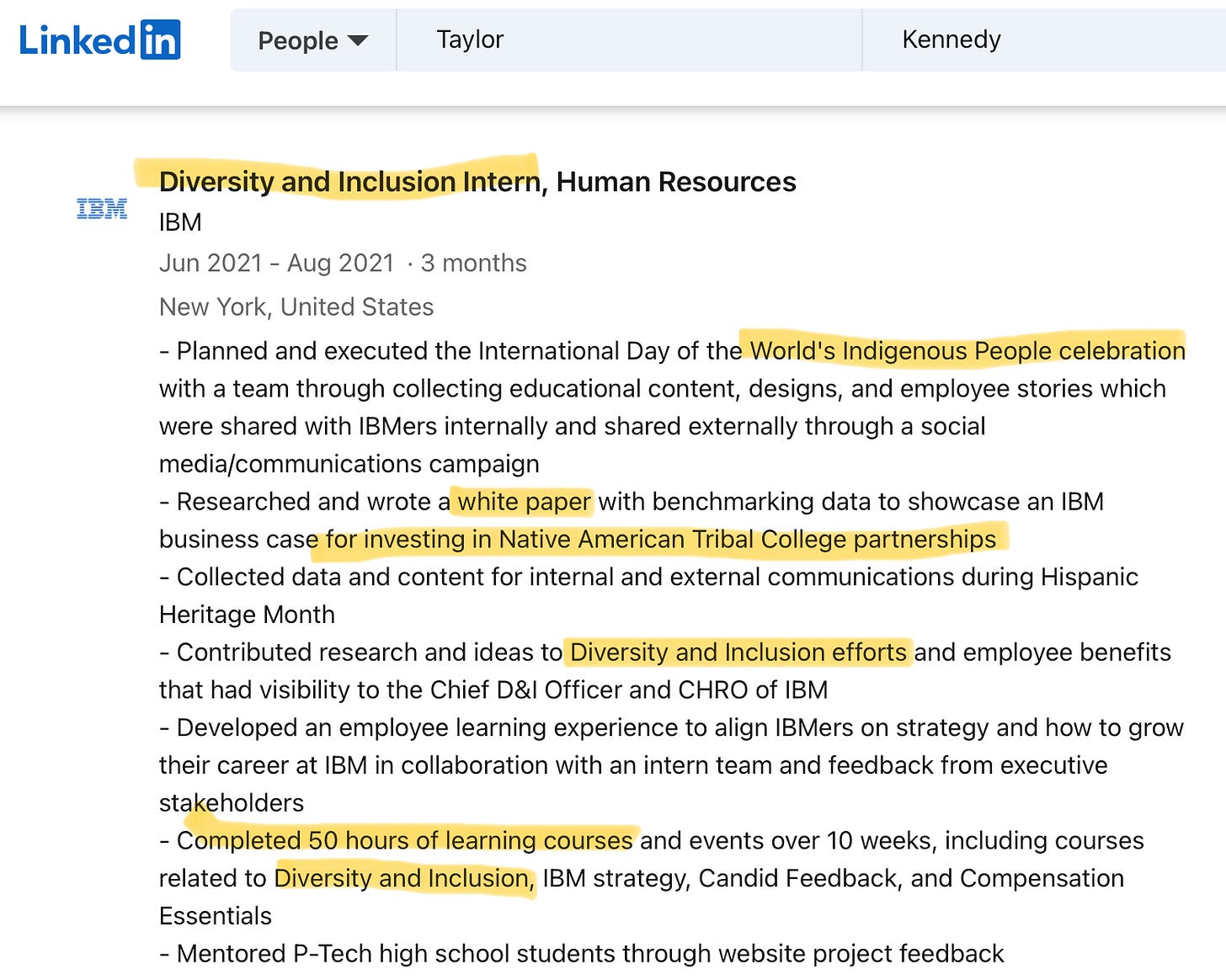
In short: DEI advocates continue to control IBM HR, and DEI departments continue to exist.
IBM / Red Hat Discriminatory Quotas
Up until recently, both IBM & Red Hat had discriminatory hiring policies — including sex and skin color quotas and even rewards for executives for hiring fewer white men.
We learned, as part of the original leaks supplied to The Lunduke Journal back in April, that “diversity goals are no longer part of the executive incentive program”.
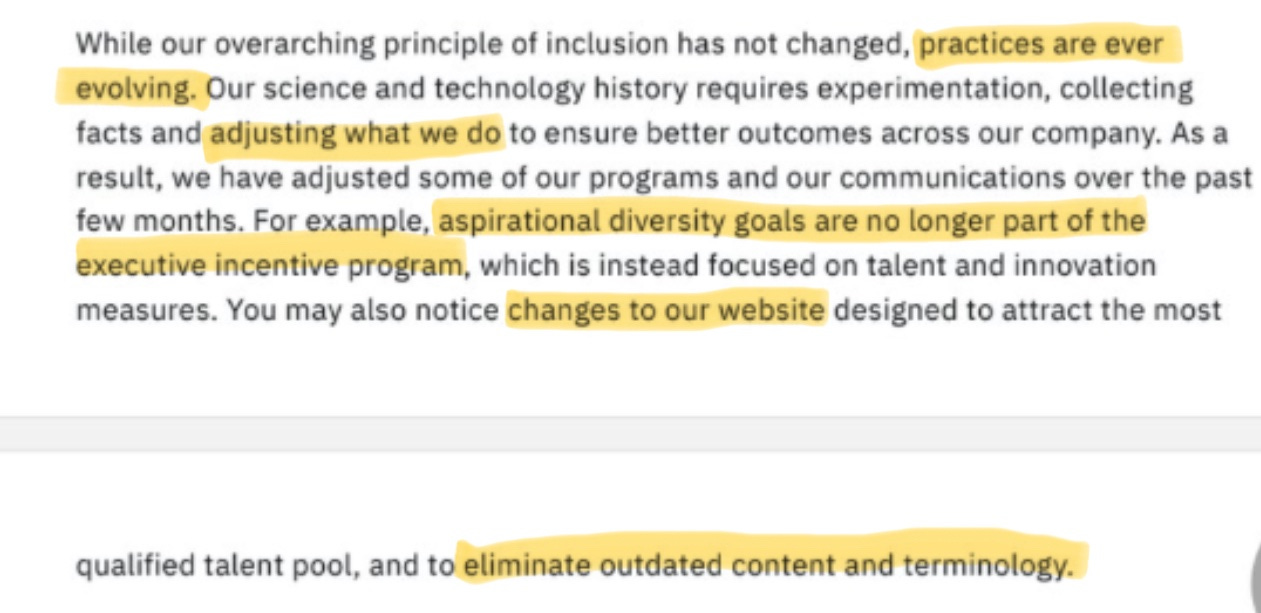
Which begs the question, now that a few months have passed, is IBM still discriminating against White Men?
Getting hard numbers on the demographics of new IBM / Red Hat employees is not likely to happen for quite some time — if ever. But here is a picture, posted yesterday, of new Red Hat interns.
That might give us some indication of where things are heading.
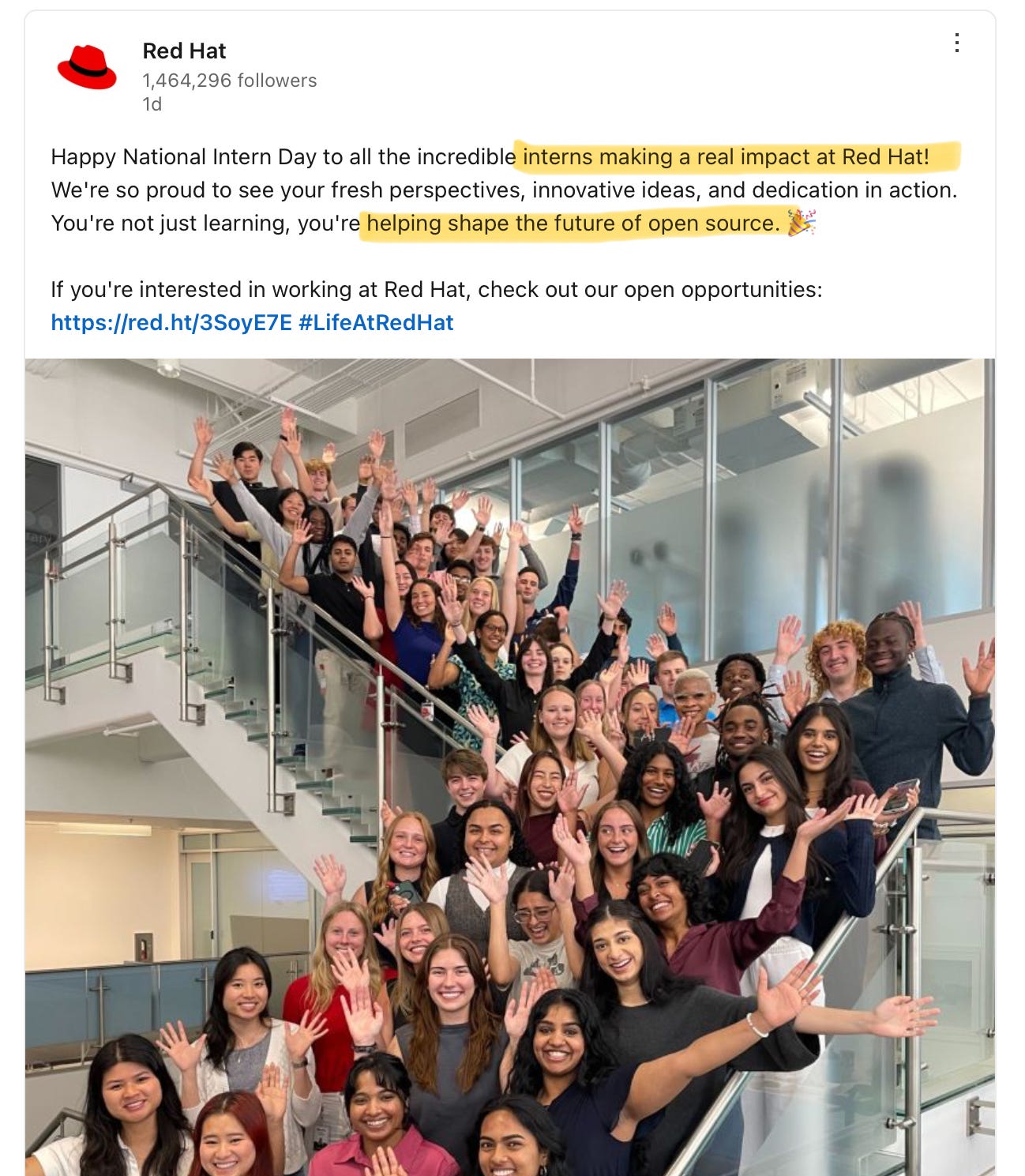
Well. Huh.
Finding the “White Guys” in this photo of Red Hat interns isn’t quite as challenging as a round of “Where’s Waldo?”… but it’s close.
Now for me, personally, I truly don’t care what the demographic ratios are of employees & interns within a company. Hire the best people for the job, regardless of their sex or ethnicity. Meritocracy is a good thing.
That said, considering the multiple pending lawsuits against IBM and Red Hat — specifically regarding their discriminatory policies towards White Men (and their previously stated goals of hiring less of them) — it is more than a little interesting that their latest crop of Red Hat interns is almost entirely… people who are not White Men.
Results Are Mixed
There are a few good signs in here of IBM dropping DEI related policies — including no longer being involved in the Human Right Campaign and the removal of the (rather repulsive, anti-White) “Allyship Badges”.
Unfortunately, most of the rest of what we’re seeing is less encouraging.
“DEI” groups simply being renamed to “Inclusion” in order to stay on the right side of the law.
What appears to be continued discriminatory hiring at Red Hat (despite lawsuits and stated policy changes).
Executives and HR still heavily controlled by “DEI Advocates”.
Corporate systems still using “preferred pronouns”.
While making significant changes to corporate policies can take time — especially across large organizations like IBM — some of these internal reports indicate an unwillingness to drop DEI policies on the part of key IBM leadership.
The Lunduke Journal will continue keeping tabs on both IBM and Red Hat.
Any employees looking to become whistleblowers can find whistleblower resources at Lunduke.com.


